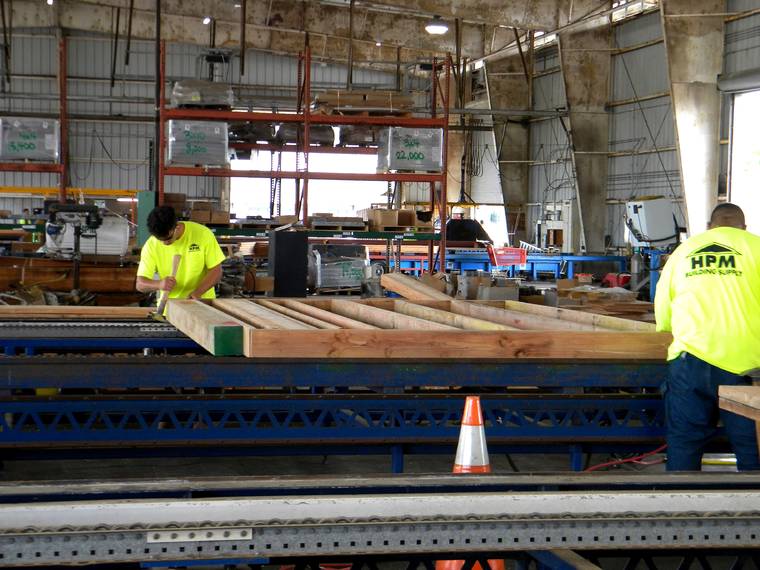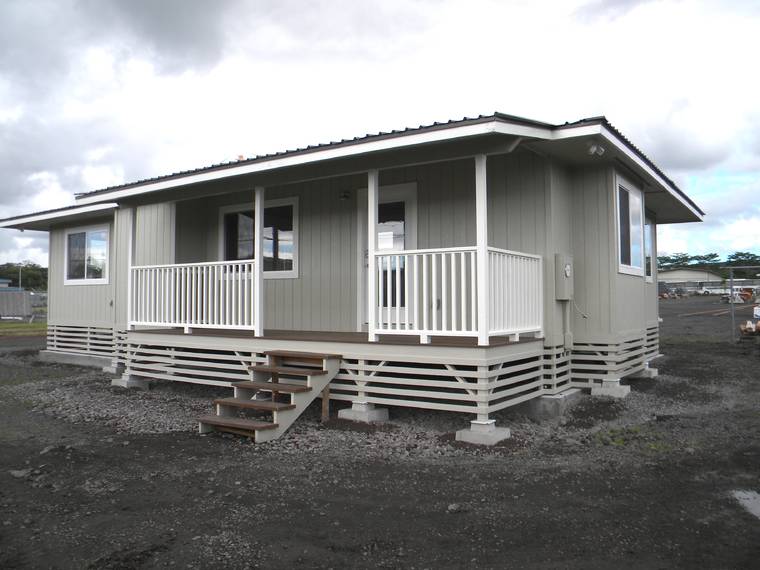After almost six hours of extremely detailed and sometimes tense debate, the County Council on Wednesday first killed, then resurrected, a new residential building code.
“This has been a really long and confusing day,” said Council Chairwoman Maile David.
The council batted back, at least temporarily, amendments tightening requirements backed by carpenters’ unions and small contractors for factory built housing. Then Bill 44 was postponed on first reading to Aug. 4.
Several council members chafed against what Hilo Councilman Aaron Chung called “design heavy” requirements that make housing less affordable on the island. He questioned how much authority the county has to amend what is a state and international code, despite his concerns about the added costs.
“These minimum standards keep going up without any considerations to the practicalities involved,” Chung said.
Others agreed.
“We keep talking about housing and then we put up road blocks so we can’t build it and we can’t use it,” said Kohala Councilman Tim Richards. “I don’t think we’re improving anything. I think we’re obstructing it.”
Kona Councilwoman Rebecca Villegas pushed for amendments adding multiple requirements for factory built housing, including language that “under no circumstance may such structures mounted on wheels become permanent in nature.”
Villegas said she’s responding to constituent concerns that trailer parks would proliferate on the island if factory built homes were allowed to be increased. There are no trailer parks on the island and they would need to be licensed under county planning code in order for them to exist, Deputy Planning Director Jeff Darrow said.
But Public Works Director Ikaika Rodenhurst and acting Deputy Building Division Director Neal Tanaka said wheeled structures such as tiny homes, U.S. Housing and Urban Development structures and factory built homes become permanent structures when they are affixed to a foundation. That makes them subject to inspections and permits in the interest of safety, they said.
“The building code allows this to happen and this amendment contradicts that,” Tanaka said.
Rodenhurst and Tanaka repeatedly asked Villegas what her intentions were, what she was trying to accomplish with her amendments in what became increasingly heated exchanges. She said safety was her top concern.
“Amendments are our best effort to improve upon a bill brought to us under forced, rushed, circumstances and questionable intentions,” Villegas said.
She ultimately withdrew the amendment, vowing to bring pieces of it back in separate amendments when the bill is next heard.
Puna Councilman Matt Kaneali‘i-Kleinfelder’s amendment allowing plans for residential buildings and accessory buildings stamped by a licensed engineer to not also have engineering reviews redone by the county was defeated.
“Part of the reason our process is so lengthy, we have an additional structural review right behind a structural architect or engineer — by someone whose job and license is to do exactly that,” Kaneali‘i-Kleinfelder said.
Rodenhurst and Tanaka said the county is well aware of the problem and is already working to address it, and adopting Bill 44 would pave the way for that.
Kaneali‘i-Kleinfelder said he’d be more comfortable if he saw it in writing.




